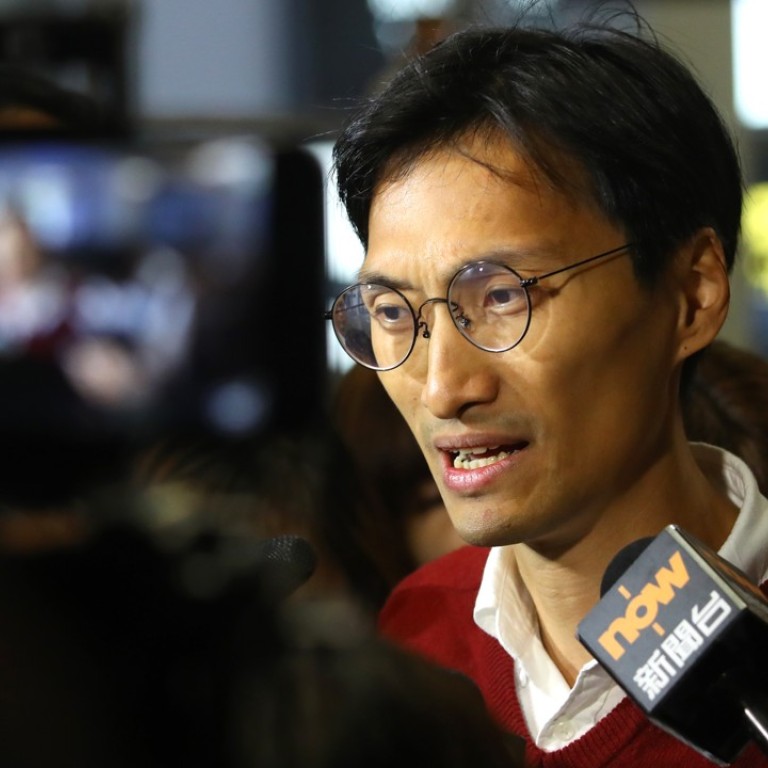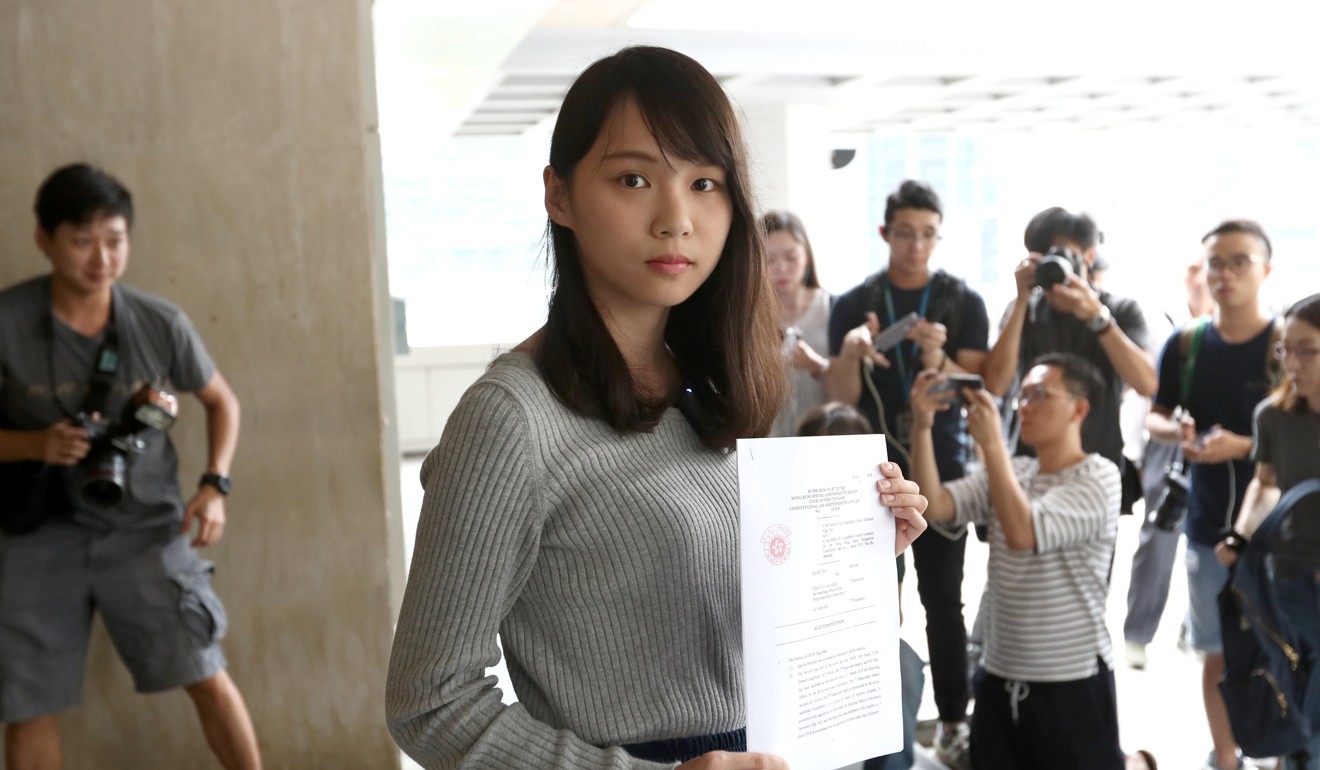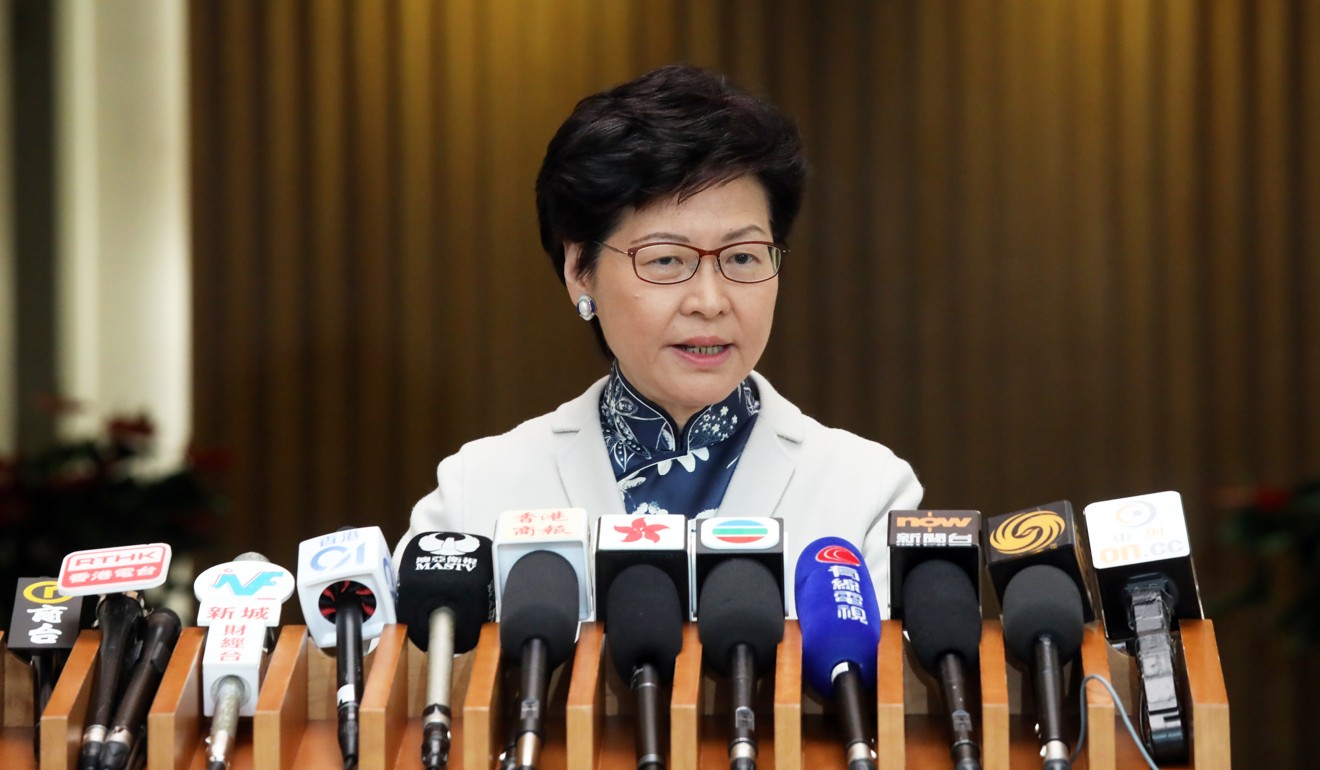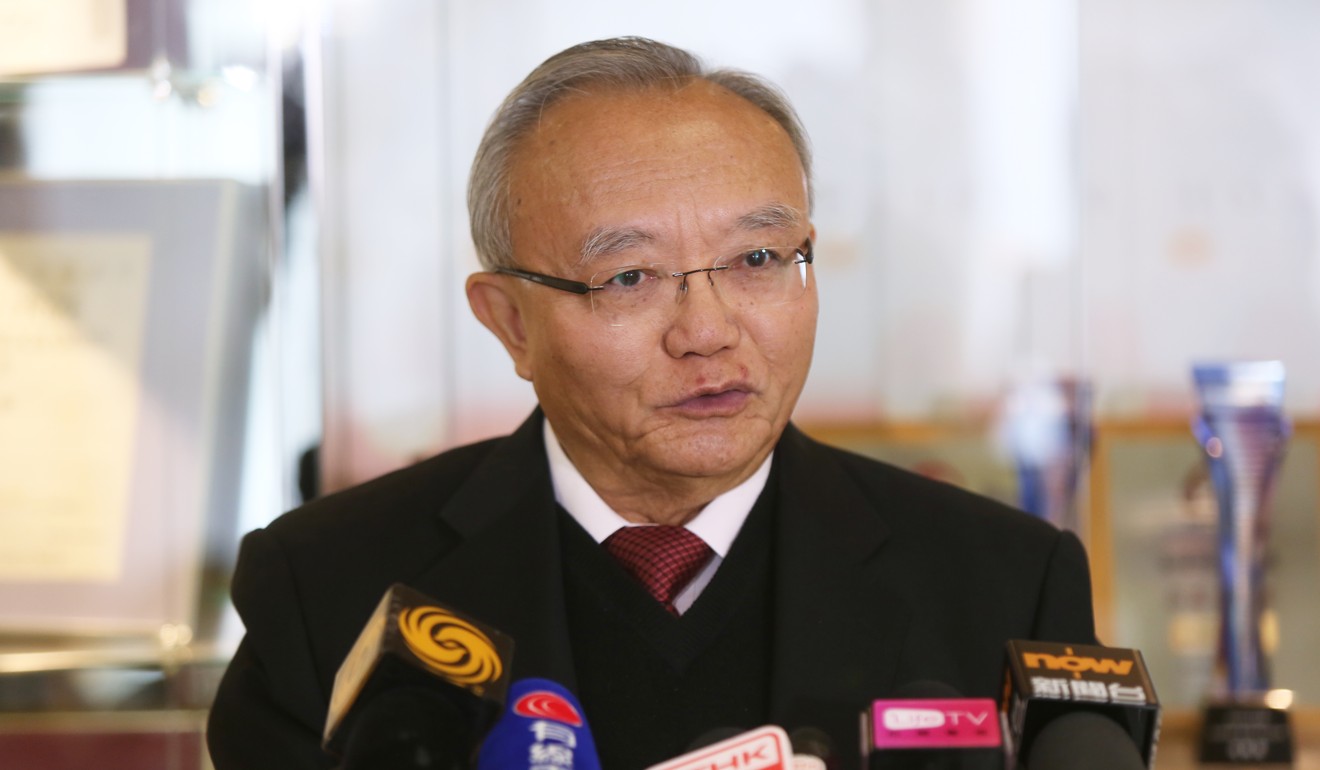
What pro-democracy lawmaker Eddie Chu’s ban from contesting village poll means for future elections in Hong Kong
- Lawmaker was barred from running for rural representative over questions on his stance on city’s independence
- Disqualification sparks fears that ‘political censorship’ will continue in next year’s district council polls
This is the first time someone has been disqualified from running for the post of village representative, though nine others were barred from Legislative Council polls for similar reasons.
Uncertainty looms over the camp, with members voicing concerns that the same type of “political censorship” will be applied during next year’s citywide district council polls.
No plan to oust lawmaker from Legco over independence views
It is also not clear if Chu, who topped 2016’s Legco polls with more than 84,000 votes, will be able to make a return in the 2020 election for the city’s legislature.
What was Eddie Chu trying to do?
Chu, along with four other candidates, had aimed to challenge Hong Kong’s rural patriarchs by running in the rural representative election to be held on January 6 and 9. Close to 1,500 seats will be up for contest among residents from 1,298 villages.
The lawmaker had his eyes on the village head post at Yuen Kong Sun village, in Yuen Long.
Despite the large number of seats available, rural representative elections are not fiercely contested, unlike Legco or district council polls, because of the exclusive nature of village affairs.
Village representatives also form the bottom layer of rural politics, under the Rural Committee and the Heung Yee Kuk – a powerful body that represents the interests of New Territories residents.
What are Chu’s political beliefs?
Speaking to the Post on Tuesday, Chu said he was an advocate for Hong Kong’s self-determination by democratic means.
“Hong Kong people should be able to determine their fate,” he said.
Chu conceded that the term “self-determination” often referred to regions seeking independence by way of a referendum. This, however, was not what he had called for, the lawmaker said.
Instead, Chu wants a review of the Basic Law – Hong Kong’s mini-constitution – and changes to the city’s electoral system.
He has also repeatedly stated that he is not an advocate of Hong Kong independence.

Why was Chu barred from running?
The lawmaker’s application was handled by returning officer Enoch Yuen Ka-lok, who is also the district officer of Yuen Long.
On two occasions, Yuen questioned Chu about his political beliefs.
One of the questions read: “Do you advocate or support that Hong Kong independence is one of the options of self-determination?”
To which Chu answered: “I think Hongkongers’ right to peacefully advocate for independence is protected by the Basic Law.”
Political storm as activist Agnes Chow banned from by-election
In a document issued on Sunday, Yuen suggested Chu had implicitly confirmed that he supported the view that “independence could be an option for Hong Kong people” by sidestepping his questions.
The officer concluded that Chu did not meet the requirement – prescribed by the Rural Representative Election Ordinance – of being willing to uphold the Basic Law and pledging allegiance to the Hong Kong Special Administrative Region.
Chu argued Yuen had gone beyond the scope of the city’s electoral laws and infringed upon his freedom of speech.
“To avoid being stripped of our political rights, not only can we not advocate or support Hong Kong independence, we also have to oppose those who do,” he said.
Politicians disqualified from previous elections included advocates of self-determination – former lawmaker Lau Siu-lai and Demosisto’s Agnes Chow Ting – as well as independence advocates such as Hong Kong National Party founder Andy Chan Ho-tin.
Returning officers had also questioned their willingness to uphold the Basic Law.

Who made the call?
The administration has consistently said that all decisions to disqualify candidates are made independently by returning officers.
Speaking on Tuesday, Chief Executive Carrie Lam Cheng Yuet-ngor said she supported Yuen’s move.
The pan-democrats, however, were not convinced that the calls had been made at the sole discretion of the returning officers, who are mid-tier civil servants at the Home Affairs Department.
“It must have been the chief executive or someone higher,” Chu said, adding that he thought Beijing could have been consulted.
Scholar Lau Siu-kai, vice-chairman of The Chinese Association of Hong Kong and Macau Studies, a semi-official think tank, said the call to disqualify Chu must have come from higher up, as it involved a relatively low-level election.
“It must have been a high-level decision … as it was expected to cause a backlash in society,” he said.

What does Chu’s ban mean for future elections?
Following their success in the 2016 Legco elections, the pan-democrats had hoped to gain more ground in the district councils, where they currently hold about a quarter of the 400 seats, with most of the remainder held by the pro-establishment camp.
Pro-democracy lawmaker Au Nok-hin warned that disqualification of election candidates could happen on a larger scale during next year’s district council polls.
Apart from newcomers, he warned that some incumbent district councillors might also be blocked from seeking re-election.
“This is really bad for the community,” Au said.
Lau said it was likely that the same standard on allegiance would be applied.
“If you want to join Hong Kong’s political system to advocate for separatism, it is impossible,” he said.
To safely enter an election, one might have to openly oppose separatism and those who advocated for it, Lau added.
How disqualifying Eddie Chu from elections damages the Hong Kong brand
A government source said Chu’s disqualification from running in the village representative election did not necessarily mean he would be banned from contesting the Legco poll in 2020.
“It would depend on the information obtained by the returning officer and the declaration made by the relevant candidates at the time,” the source said. “It’s too early to tell now.”
The source noted that Chu had consciously avoided the returning officer’s questions on whether he supported Hong Kong independence as an option for the city’s self-determination.
Additional reporting by Gary Cheung

